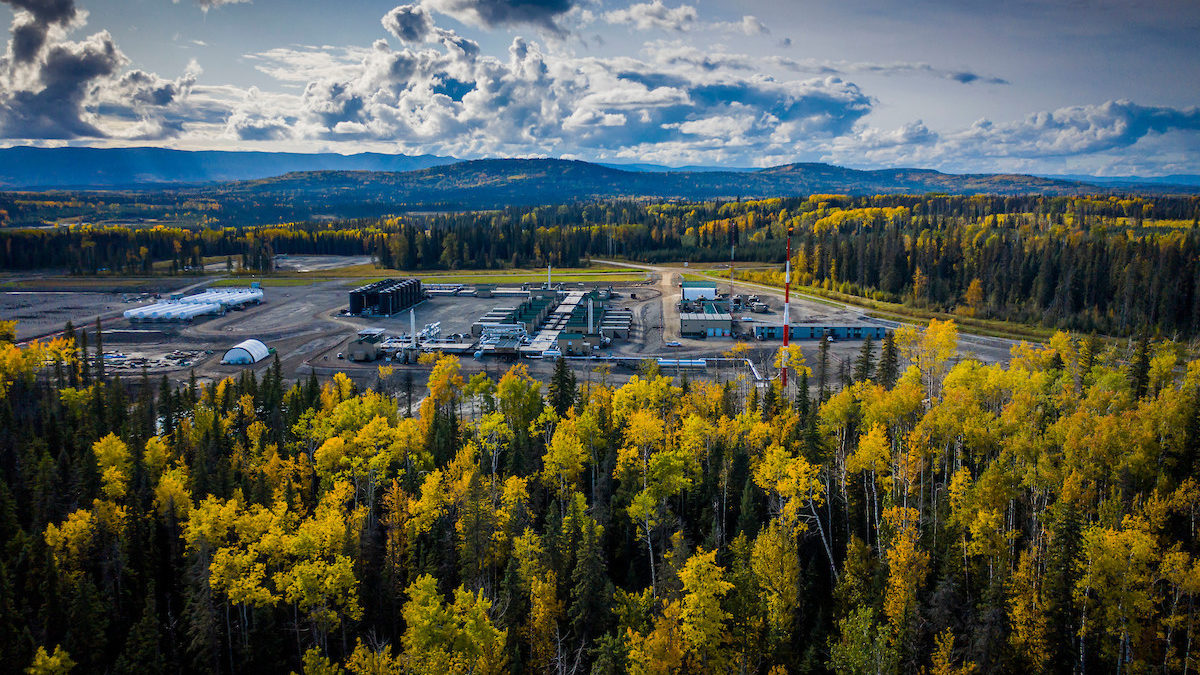
Customers in Quebec will soon use more natural gas from western Canada that is certified as being produced with excellence in environmental and social responsibility.
Énergir, Quebec’s main natural gas distributor, has reached a deal to purchase supply from Calgary-based Pacific Canbriam Energy. The agreement follows new certification for the producer by New York-based non-profit Equitable Origin, whose program was born out of concerns over oil development in the Amazon basin.
“It’s not an easy standard to achieve. Not everybody could achieve certification,” says Equitable Origin CEO Soledad Mills.
“I think typically a lot of stakeholders might paint the industry with one brush, whereas actually there’s quite a difference between operators. Some responsible operators are going above and beyond the minimum that they have to do for legal compliance, and really are implementing innovations and leadership in areas like greenhouse gas emissions reductions, methane monitoring, carbon capture, [and] community engagement.”
Pacific Canbriam is one of the companies showing leadership in these environmental, social and governance (ESG) measures, Equitable Origin’s assessment found.
It’s the second company that produces natural gas from the Montney region straddling Alberta and B.C. to receive the distinction, following Seven Generations Energy (now ARC Resources) in 2019.
Seven Generations also signed a deal to supply Quebeckers through Énergir, subsequently receiving a premium price from the distributor for its ESG-certified natural gas. Equitable Origin’s assessments of both operators are available online.
“I think that transparency gives our customers comfort, not only in the emissions data around our development, but also that we have a culture of trying to develop this responsibly,” says Pacific Canbriam CEO Paul Myers.
For example, Myers pointed to the company’s water recycling hub, in which it has invested about $100 million over the last 13 years. The hub enables reuse of up to 99 per cent of water produced during natural gas operations, and because of pipeline connections there is no need to truck around water and generate additional greenhouse gas emissions.
Pacific Canbriam is also replacing as much diesel as possible in its operations with lower emissions natural gas.
“The whole certification process really is just an audit of how you’re doing on the ESG front, and particularly the environmental [performance] in the field,” Myers says.
“It helped us identify areas where we can beef things up. It also demonstrated areas where we’re going above and beyond. And that’s just part of the culture we tried to instill from day one.”
Mills says that a global voluntary standard helps level the playing field for natural gas producers, helping companies that go above and beyond demonstrate their ESG credentials.
“I think companies are looking for ways they can demonstrate site level performance in a credible way that’s validated by third party, that it’s not them waving their own flag and saying, ‘look how great we are,’” she says.
Now it’s headed to Quebec, but by mid-decade Pacific Canbriam’s ESG-certified natural gas could be sold in global markets. The company is the supplier to the proposed Woodfibre LNG project near Squamish, B.C., which is expected to start operating around 2025.
Royal Dutch Shell forecasts that global demand for natural gas, traded as LNG, will double between 2020 and 2040, primarily driven by Asian economies moving off coal.
Mills says there are now 20 companies undergoing its assessment process in Canada and the United States, including EQT Energy, America’s largest natural gas producer.
The unaltered reproduction of this content is free of charge with attribution to Canadian Energy Centre Ltd.